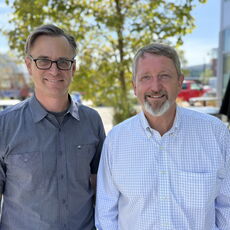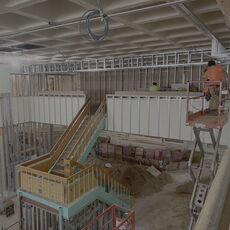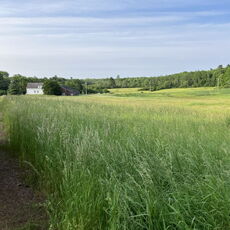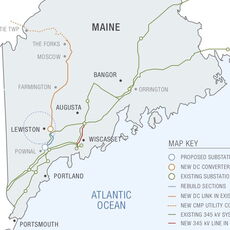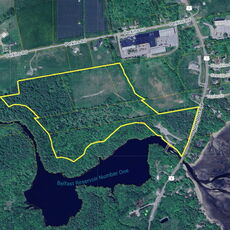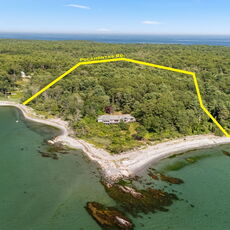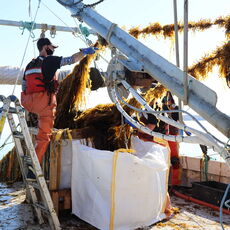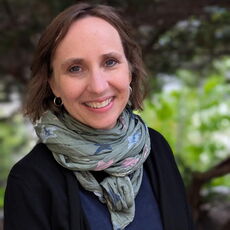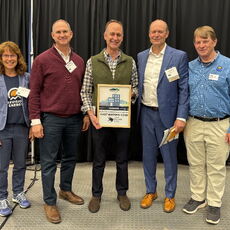Processing Your Payment
Please do not leave this page until complete. This can take a few moments.
Sustainability
Developer of affordable, ‘net zero’ homes teams with prefab maker on third build
Updated: December 18, 2025The Trenton home is Zero Energy’s first modular build, prefabricated at Knickerbocker’s Wiscasset facility with installations such as cabinetry, drywall and flooring.
Updated: December 18, 2025Here comes the sun: sustainability pros start consultancy in Portland
December 15, 2025Hubbard and Pulaski have consulted for major institutions and developers around the world. With their new firm, “We like seeing the projects through and working face-to-face.”
December 15, 2025Three Portland schools awarded LEED silver certification
Updated: December 15, 2025Renovations included materials with low levels of volatile organic compounds, water-saving plumbing fixtures and HVAC systems that meet or exceed energy standards.
Updated: December 15, 2025L.L.Bean grants to land trusts will stretch from York to Grand Lake Stream
Updated: December 8, 2025Land trusts care for nearly 3 million acres — close to 15% of the state. As nonprofits, they rely heavily on private donations and grants to carry out work.
Updated: December 8, 2025‘Missing middle’ housing planned for Rockport farmland
Updated: November 26, 2025An acre of the former dairy farm will go to workforce housing development. Five acres will be preserved as part of an adjacent conservation area.
Updated: November 26, 2025-
After years of debate, Avangrid transmission line through Maine gets final permit
Updated: November 24, 2025Avangrid Inc. secured the final permit required for the New England Clean Energy Connect transmission line project, years in the making.
Updated: November 24, 2025Belfast parcel that was rejected for aquaculture site will become conservation land
Updated: November 14, 2025The buyer is the conservation group Penobscot Bay Waterkeeper, which paid Nordic Aquafarms Inc. $1.5 million for the site.
Updated: November 14, 2025Kittery Point's highest-priced home sale sets aside 17 acres for land trust
Updated: November 13, 2025The $5.5 million sale included a 2,500-square-foot house on nearly 22 acres, much of which will be turned over to the Kittery Land Trust.
Updated: November 13, 2025Three Maine schools in top 50 of Princeton Review's 'green colleges' list
October 27, 2025Highlights include 100% of the campus energy coming from Maine renewables and 99% of food waste diverted from the landfill.
October 27, 2025With pending sale of Kennebec River dams, Sappi urges caution about potential removal
Updated: September 24, 2025Decommissioning or removal is part of a transaction involving four dams. Paper company Sappi says Shawmut Dam’s removal would jeopardize its Skowhegan mill.
Updated: September 24, 2025With deal, Appalachian Mountain Club conservation area is now 3 times larger than Acadia
September 17, 2025Under AMC stewardship, the North Woods area will support restoration forestry, habitat connectivity, climate adaptation and forestry- and recreation-related jobs.
September 17, 2025Augusta packaging maker offsets paper usage with tree-planting program
August 24, 2025A program used by J.S. McCarthy Packaging + Print calculates paper consumption and how many trees were harvested, then plants trees in certified global reforestation projects.
August 24, 2025Island Institute explores ways Maine's seafood industry could reduce carbon footprint
July 24, 2025The Island Institute partnered with seven seafood businesses to measure their carbon footprint.
July 24, 2025Wabanaki nonprofit acquires 245-acre farm in Waldo County as food hub
Updated: June 6, 2025The site offers the organization an enduring setting to cultivate traditional crops, steward natural resources and host cultural and educational programming.
Updated: June 6, 2025Maine Coast Heritage Trust expands leadership team
Updated: June 9, 2025The land conservation nonprofit, based in Topsham, added Linda Lidov, Hannah Whalen, Rebecca Kurtz and Sarah Hale.
Updated: June 9, 2025East Brown Cow recognized for climate-friendly operations and supply chain actions
Updated: June 9, 2025Actions include LED lighting across more than one million square feet, charging stations in downtown Portland, electric vehicles and solar arrays.
Updated: June 9, 2025

